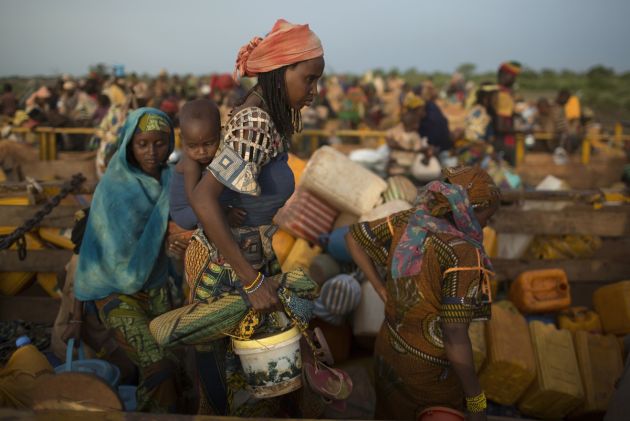Attacks on basis of religion in Central African Republic alarm UN human rights chief

United Nation High Commissioner for Human Rights Zeid Ra'ad Al Hussein has expressed deep alarm at the volatile situation in the Central African Republic, particularly given the worrying hate speech and incitement to violence based on religion.
He issued a statement on May 9 after recent killings and attacks in Bangui, the CAR capital.
"Last week's violence in Bangui demonstrates just how volatile the situation is, and how easily crowds can be manipulated into angry mobs ready to attack their neighbours on the basis of their religion," Zeid said.
"With hate speech and incitement to violence so prevalent in media and social media, I fear that spontaneous eruptions of violence like that of May 1 could become more widespread and difficult to contain."
The UN said that on May 1, in the PK5 neighborhood of Bangui, at least 22 people were killed and 185 others injured after an armed group, led by Nimeri Matar Djamous (nicknamed "Force"), whipped up violence and attacked a church in response to a government attempt to arrest one of their leaders.
This triggered revenge attacks by the Christian community, including the lynching to death of three Muslim individuals said the UN rights agency.
Attacks continued into last weekend, with houses, hospitals, churches and mosques in many localities in Bangui attacked.
The CAR has a population of 4.6 million people and has been unstable since its independence from France in 1960.
About 50 percent of the population are Christians, who are roughly equally divided between Catholics and Protestants, and 15 percent are Muslims.
It has an area of 240,535 square miles (622,984 square kilometres).
It is rich in diamonds, gold, oil and uranium but has one of the world's poorest populations.
It was plunged into turmoil in 2013 when Muslim rebels from the Seleka umbrella group seized power in the majority Christian country.
A band of mostly Christian militias, called the anti-balaka, rose up to counter the Seleka.
Seleka handed power to a transitional government in 2014 under international pressure but months of violence followed and the country was effectively partitioned, in spite of the presence of a UN peacekeeping force and a French mission.
The country is undergoing an internationally supervised transition involving a constitutional referendum as well as presidential and parliamentary elections.
The UN High Commissioner called on CAR government and the international community to be extremely vigilant and to take serious measures to curb the incitement to violence on communal grounds.
"Perpetrators of killings and violent attacks should be held individually criminally responsible so that an entire community is not tarred with the same brush," said Zeid. "
This will make it more difficult for opportunistic armed groups to manipulate angry mobs into revenge attacks against an entire community. Central Africans know all too well what can happen if communal sentiments are stoked into violence."*
The UN rights chief called on all relevant national and international actors to take decisive action to effectively prevent future outbreaks of violence and human rights violations.
He stressed that this recent violence must not be allowed to undermine a peace process facilitated by the African Union.